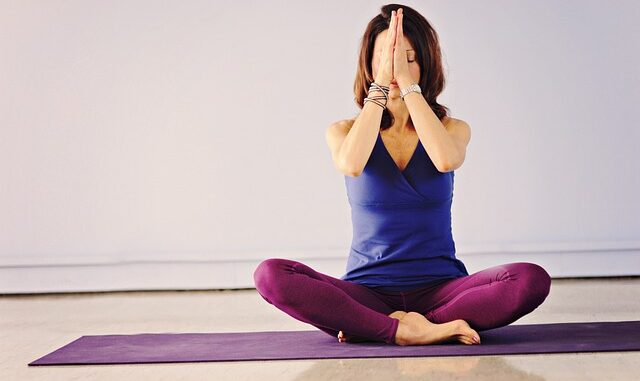
Summary
This article provides a practical guide to maintaining a healthy lifestyle in recovery from opioid addiction. It emphasizes the importance of nutrition, exercise, sleep, stress management, and mindfulness in supporting long-term sobriety. By incorporating these tips, individuals can enhance their physical and mental well-being, build resilience, and navigate the challenges of recovery.
** Main Story**
Recovery Lifestyle Tips: Finding Your Healthy Path
Recovering from opioid addiction? That’s seriously brave, and it’s a journey that’s as much about your mind and spirit as it is about your body. Getting off opioids is a huge step, but staying on track means looking after yourself – the whole package. Let’s talk about some real-world ways to build a healthy life in recovery, so you can not just survive, but really thrive.
Nourishing Your Body: Food is Fuel
Addiction messes with your eating habits, plain and simple. It can leave you with gaps in your nutrition that make recovery harder. Think of food as medicine. Seriously.
-
Balanced Meals are key: Load up on fruits, veggies, lean proteins, and whole grains. This is where you get your vitamins, minerals, and those all-important antioxidants that help repair the damage addiction might’ve caused.
-
Hydration is Vital: You’re likely dehydrated after active addiction. Staying properly hydrated helps everything function better. Keep that water bottle handy!
-
Regular Mealtimes: Getting your meals at roughly the same time each day helps stabilize your blood sugar and can even dial down those cravings.
-
Mindful Eating: Pay attention to your body! Are you actually hungry, or are you eating because you’re bored or stressed? It’s a subtle, but essential, difference.
Moving Towards Wellness: Get Your Body Moving
Exercise is your secret weapon, honestly. It’s good for your body, sure, but it does wonders for your mind too.
-
Find What You Love: Whether it’s dancing, swimming, hiking, or something totally different, find something you actually enjoy, otherwise, you won’t stick with it. I used to hate running, but then I discovered Zumba – total game changer! Now, I love excercise and get excited when its time to attend Zumba class.
-
Start Slow: Don’t try to run a marathon on day one. Ease into it, gradually increasing how long and how hard you exercise as you get stronger.
-
Consistency Rules: Aim for at least 30 minutes of moderate exercise most days.
-
Listen to Your Body, seriously: Rest when you need to, especially early on. No one wants to relapse because you are sore.
Restorative Sleep: Recharge Your Batteries
Sleep is where the magic happens; it’s when your body and mind repair themselves. And addiction? Well, that throws your sleep cycle completely out of whack, so, prioritizing good sleep habits is a must.
-
Stick to a Schedule: Go to bed and wake up at the same time every day, even on weekends. It’s harder than it sounds, I know.
-
Bedtime Routine: Wind down with a warm bath, a good book, or some calming music. Create a sanctuary.
-
Optimize Your Sleep Space: Dark, quiet, and cool – that’s the ideal recipe for restful sleep.
-
Cut the Screen Time: Step away from your phone, tablet, or computer an hour before bed. That blue light messes with your sleep. No scrolling!
Managing Stress: Your Relapse Prevention Tool
Stress is a major trigger, so learning how to deal with it is critical. Building these skills can help you face challenges without turning back to old habits.
-
Mindfulness & Meditation: Take a few minutes each day to just breathe and be present. It sounds simple, but it can make a huge difference.
-
Deep Breathing Exercises: Calm your nervous system and find your center with deep breathing techniques. Try box breathing – inhale for four, hold for four, exhale for four, hold for four, repeat.
-
Yoga and Tai Chi: These practices connect your mind and body through movement, breathing, and meditation. Talk about a triple threat!
-
Support Groups: Connect with others who get it. Sharing experiences and getting support can make all the difference. I’ve seen people turn their lives around just by connecting with others who understood their struggles.
Cultivating Mindfulness: Tuning In to Yourself
Mindfulness is all about paying attention to your thoughts, feelings, and body sensations without judgment. It’s a practice, and it can help you understand your triggers, cravings, and emotions so you can respond in a healthy way.
-
Formal Mindfulness Practice: Meditation or body scan exercises can be a great starting point.
-
Informal Mindfulness Practice: Bring mindfulness into your daily life – when you’re eating, walking, or even showering.
-
Self-Compassion: Treat yourself with kindness, especially when things get tough. We’re all human, after all. Don’t put to much pressure on yourself.
-
Professional Guidance: If you’re struggling, don’t hesitate to reach out to a therapist or counselor who specializes in mindfulness-based therapy.
So, what do you think? It’s a lot, I know, but even small changes can make a big difference. This isn’t a sprint; it’s a marathon. Be kind to yourself, celebrate your wins, and never be afraid to ask for help. You’ve got this, and you deserve a life that’s healthy, happy, and free from addiction.


Be the first to comment